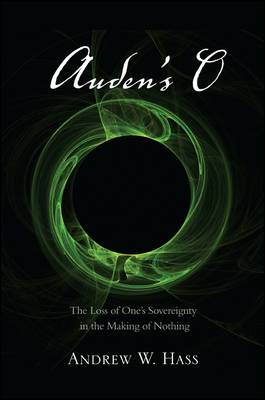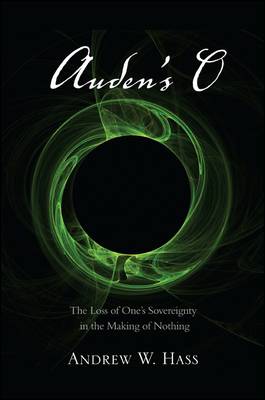
- Afhalen na 1 uur in een winkel met voorraad
- Gratis thuislevering in België vanaf € 30
- Ruim aanbod met 7 miljoen producten
- Afhalen na 1 uur in een winkel met voorraad
- Gratis thuislevering in België vanaf € 30
- Ruim aanbod met 7 miljoen producten
Omschrijving
Explores the rise of the idea of nothing in Western modernity and how its figuration is transforming and offering new possibilities.
Finalist for the 2014 American Academy of Religion Book Award for Excellence in the Study of Religion, in the Constructive-Reflective category
In this groundbreaking, interdisciplinary history of ideas, Andrew W. Hass explores the ascendency of the concept of nothing into late modernity. He argues that the rise of the reality of nothing in religion, philosophy, and literature has taken place only against the decline of the concept of One: a shift from a sovereign understanding of the One (unity, universality) toward the "figure of the O"-a cipher figure that, as nonentity, is nevertheless determinant of other realities. The figuring of this O culminates in a proliferation of literary expressions of nothingness, void, and absence from 1940 to 1960, but by century's end, this movement has shifted from linear progression to mutation, whereby religion, theology, philosophy, literature, and other critical modes of thought, such as feminism, merge into a shared, circular activity. The writer W. H. Auden lends his name to this O, his long poetic work The Sea and the Mirror an exemplary manifestation of its implications. Hass examines this work, along with that of a host of writers, philosophers, and theologians, to trace the revolutionary hermeneutics and creative space of the O, and to provide the reasoning of why nothing is now such a powerful force in the imagination of the twenty-first century, and of how it might move us through and beyond our turbulent times.
Specificaties
Betrokkenen
- Auteur(s):
- Uitgeverij:
Inhoud
- Aantal bladzijden:
- 344
- Taal:
- Engels
Eigenschappen
- Productcode (EAN):
- 9781438448329
- Verschijningsdatum:
- 2/07/2014
- Uitvoering:
- Paperback
- Formaat:
- Trade paperback (VS)
- Afmetingen:
- 150 mm x 230 mm
- Gewicht:
- 485 g

Alleen bij Standaard Boekhandel
Beoordelingen
We publiceren alleen reviews die voldoen aan de voorwaarden voor reviews. Bekijk onze voorwaarden voor reviews.








